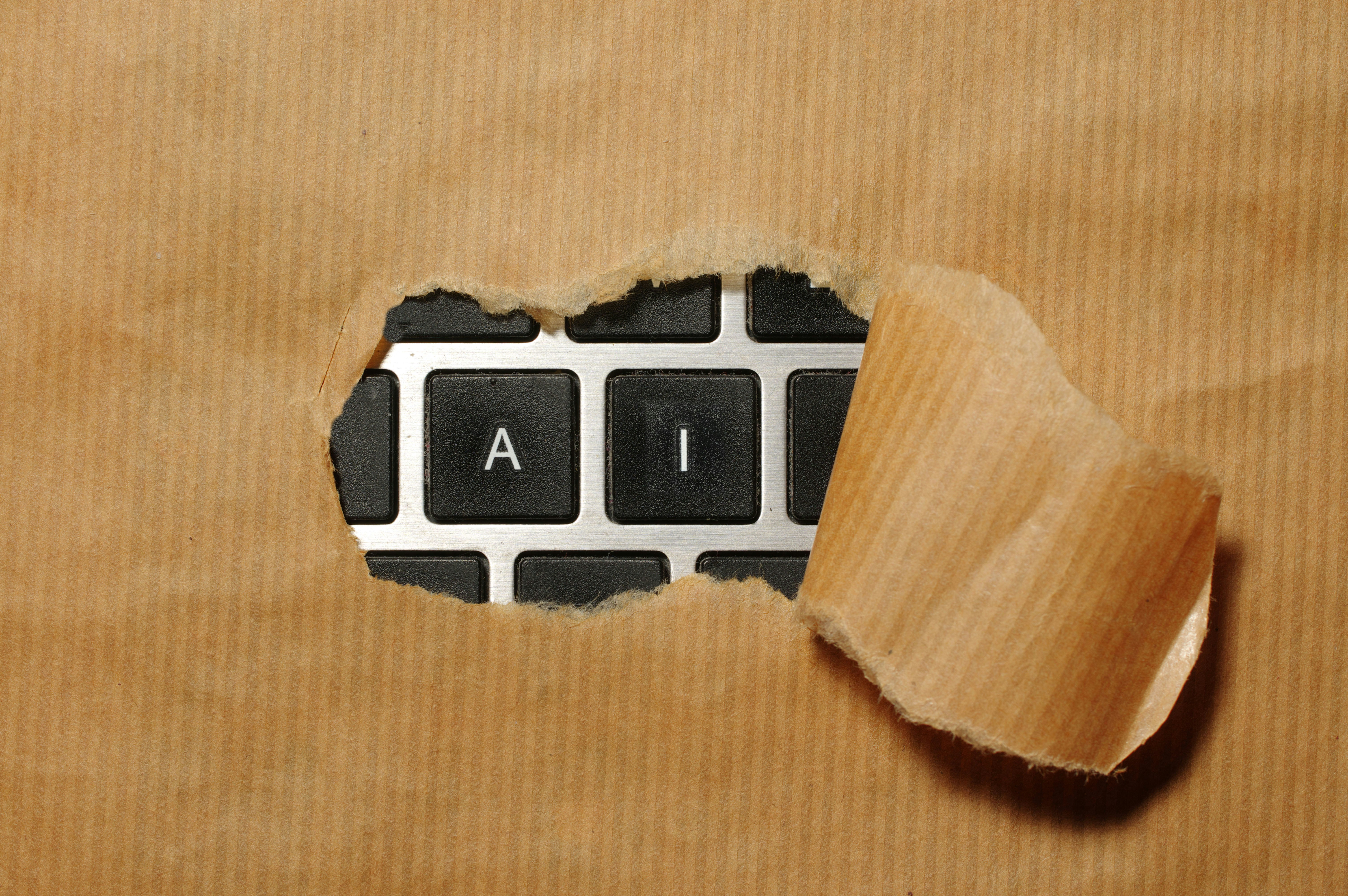AI Impact on Wikipedia
AI Impact on Wikipedia
(Updated December 2025) The rise of artificial intelligence is changing the game for Wikipedia; both its role as a foundational source for AI systems and its direct human traffic are being impacted. While Wikipedia remains deeply relevant (especially for AI models), its human-visit dynamics are shifting sharply.
How Wikipedia fits into the AI-visibility ecosystem
Wikipedia as foundational dataset for AI
Since its launch, Wikipedia has been one of the richest freely-licensed knowledge bases on the web. AI models, including large language models (LLMs) such as ChatGPT, Gemini and Perplexity, draw heavily on Wikipedia’s text, structure and citations. According to the Wikimedia Foundation, “we continue to experiment with new ways … including with generative AI platforms … aiming to bring human contribution … to the forefront.” (Wikimedia Foundation)
Because of this, Wikipedia’s information enters the “machine layer” of the knowledge ecosystem: the place where AI crawlers, training algorithms and datasets reference content; sometimes without a human ever clicking the Wikipedia page.
The shift from human visits to machine usage
From a human-visitor perspective, Wikipedia served (and still serves) as a research tool, reference site and background link provider. But with generative AI and answer-engine models becoming mainstream, more users are getting their answers without navigating to the original Wikipedia page. Meanwhile, AI crawlers extract large volumes of Wikipedia’s content for training or for answer-generation.
For SEO professionals specialising in AI visibility, this means Wikipedia's role is less about “sending human visitors via link clicks” and more about “being part of the citation web and data sources that AI models reference.”
A useful analogy: if traditional SEO is like being a visible billboard on a busy highway (Google Search), then AI SEO/GEO is like being the invisible power-grid that feeds the EVs driving past; you may not get all the visibility, but you supply a key resource.
Evidence of traffic decline and machine-use rise
Declining human traffic
Research shows Wikipedia has experienced a meaningful drop in organic search traffic and referrals:
According to a March 2025 report by DataReportal, Wikipedia’s organic search visits fell from approximately 4.61 billion in March 2022 to 3.53 billion in March 2025 (≈ -26 %). Direct visits over the same period fell roughly 12 %. (DataReportal – Global Digital Insights)
A study by Columbia Business School found that Wikipedia articles whose content resembled what ChatGPT would produce saw a noticeable drop in human readership since the launch of ChatGPT. (Columbia Business School)
Traffic comparison: Some sources show that ChatGPT recently overtook Wikipedia in monthly visits. According to one report, Wikipedia traffic dropped by ~6 % while ChatGPT rose ~13 % in June 2025. (azoma.ai)
Rising machine usage & infrastructure strain
The Wikimedia Foundation has reported a ~50 % surge in bandwidth used by AI-bot crawlers since January 2024; much of it not from human visitors but from automated systems scraping content. (Ars Technica)
Wikipedia is being cited in discussions about how AI models shape knowledge graphs and training data. As one blog puts it: “If you want to influence AI search results … the answer often starts with Wikipedia.” (Lumino)
Summary table
Metric | Change | Implication |
|---|---|---|
Organic search visits (Wikipedia) | ~-26% (Mar 22 to Mar 25) (DataReportal – Global Digital Insights) | Human click-referral decreasing |
Direct visits | ~-12% over same period (DataReportal – Global Digital Insights) | Less human engagement overall |
AI crawler bandwidth usage (Wikimedia) | +50% since Jan 2024 (Ars Technica) | Machine demand increasing |
Traffic comparison (ChatGPT vs Wikipedia) | ChatGPT overtook Wikipedia in monthly visits in 2025 (Roic AI) | Shift in consumption mode |
The risks Wikipedia faces (and why it matters to us)
Credibility & content quality
Because Wikipedia is so widely referenced, any drop in human engagement may affect the volunteer editor base, the freshness of articles, and the oversight of emerging content. According to one study, “Advances in large language models and generative AI will diminish the value of Wikipedia.” (asistdl.onlinelibrary.wiley.com)
Further, reliance on AI-generated content raises issues: some Wikipedians have warned that generative-AI summaries or AI-initiated edits can erode trust. (Ars Technica)
Volunteer engagement & funding
With fewer human visits, fewer volunteers may feel incentivised to contribute, and fewer donations may come. The Wikimedia Foundation itself emphasises that humans remain central. (Wikimedia Foundation)
Sustainability of the knowledge-source ecosystem
For brands and SEO professionals, the decline of Wikipedia as a vibrant human-visited platform may reduce opportunities for traditional referral traffic, but the continued use of Wikipedia by AI means its citation value remains high. If Wikipedia’s content degrades (through fewer updates or lower editorial quality) then the machine-learning models that rely on it may also suffer; and by extension, brands trying to get cited by AI systems may face new obstacles. (Columbia Business School)
What this shift means for SEO, AI visibility optimisation and brands

Wikipedia remains relevant but the role is shifting
For a head of marketing or business owner experiencing a drop in Google organic traffic, this shift in Wikipedia dynamics offers both challenge and opportunity:
Challenge: If your traditional SEO strategy counted on Wikipedia for referral links and visibility, the reducing human traffic means that benefit may diminish.
Opportunity: Because AI models continue to index and use Wikipedia content as training and citation sources, being present in that ecosystem helps your brand in the “AI visibility” layer (i.e., being cited by AI bots, showing up in LLM answers).
Link between Wikipedia and AI SEO pillars
Let’s map how Wikipedia connects to AI SEO/generative engine optimisation (GEO):
Authority & trust signals: Wikipedia citations and structured data are part of what models use to rank or reference facts.
Knowledge-graph influence: If Wikipedia content contains your brand (and is properly sourced) then AI models may be more likely to reference you in answers (i.e., “Get Cited by ChatGPT”).
Traffic recovery and brand visibility: As organic Google traffic falls, the brands that show up in AI-derived answers (via Wikipedia citations and other robust sources) gain a competitive advantage.
Key takeaways for SEO strategy
Audit your Wikipedia presence (if relevant): is your brand or category properly represented? Are the citations current, reliable and unbiased?
Signal to AI systems: optimise not just for the human click, but for how AI models crawl and reference content (structured data, citations, schema). This is “AI Visibility Optimisation”.
Content design for next-click: since AI answers may satisfy surface intent, the “next step” is your website. Ensure your content offers depth beyond the AI snippet. This helps “Recover Traffic Lost to AI”.
Turn disadvantage into advantage: businesses that act early on generative engine optimisation (GEO) gain time-advantage over competitors. As the agency indexLab puts it: you are building trust signals now before others catch up. (indexlab.ai)
Actions for business owners/heads of marketing
Here’s a bullet list of actionable steps you can take:
Conduct an AI Visibility Audit: assess how your brand shows up in ChatGPT, Gemini, Perplexity, and whether you’re cited in Wikipedia or other high-authority sources.
Review your Wikipedia footprint: check whether your organisation or category has a Wikipedia page, whether it’s well-sourced, and whether the relevant citations mention your brand in a neutral, factual way.
Optimise your structured data & citation ecosystem: ensure your website uses schema markup, your brand appears on independent third-party platforms, and your information is consistent across sources (name, address, phone, etc.).
Create deep, value-rich content: Even if AI models provide a quick answer, you want to be the “click after the answer”. That means providing unique data, case studies, examples (including from indexLab’s own client stories: “In just weeks we went from not showing up at all to consistently ranking first on ChatGPT. My website visits from AI search doubled …” (indexlab.ai)).
Monitor AI-reference signals not just Google rank: Track whether your content or brand appears in AI-answers, not just where you rank in traditional SERPs.
Prepare for ongoing change: The AI visibility ecosystem is evolving quickly. Commit to an iterative strategy rather than a one-off fix.
Counter-arguments & nuance
Some may argue: “If Wikipedia’s human-visits are falling, why bother with it at all?” It’s true that the human-referral value may be declining, but Wikipedia’s value for AI visibility (crawled data, citation authority) remains high.
Others may warn: “AI models change quickly, why invest now?” While models will evolve, the foundational signals of trust (structured data, independent citations, high-quality content) are stable. Being early gives you a time advantage.
It’s also worth noting: not all content categories are impacted equally. The Columbia study found the drop was stronger for Wikipedia articles that resemble ChatGPT-style answers; niche or specialist content may still see strong engagement. (Columbia Business School)
Some sources caution against attributing all traffic decline to AI answers: for example, Google has said that “it’s misleading to make generalisations about the causes” of web-traffic decline. (eWeek)
Frequently Asked Questions
How is AI impacting Wikipedia’s visibility?
AI systems like ChatGPT and Gemini increasingly use Wikipedia as a data source, boosting its machine visibility but reducing human traffic, since users now get answers directly from AI instead of visiting Wikipedia pages.
Why does this shift matter for SEO and marketers?
Wikipedia remains one of the most trusted sources for AI training data and citations. Brands mentioned or cited there have a higher chance of being referenced in AI-generated answers, a new layer of visibility crucial for AI SEO and generative engine optimisation (GEO).
What can businesses do to adapt?
Conduct an AI Visibility Audit, strengthen your brand’s Wikipedia and citation presence, and invest in AI SEO optimisation to recover traffic lost to AI-driven results and increase your chances of being cited by models like ChatGPT or Perplexity.
Conclusion

The AI impact on Wikipedia is real; there’s a shift from purely human-visitor engagement to machine-driven usage and citation, with human traffic declining while AI-reference demand rises. For businesses and marketers, that means Wikipedia still matters; but in a different way. It’s less about driving clicks and more about shaping how AI systems cite and surface your brand.
By embracing AI visibility optimisation, generative engine optimisation (GEO), and building your authority in the citation networks that feed into models like ChatGPT, Gemini and Perplexity, you can recover traffic lost to AI and position your brand to be trusted, visible and chosen in the age of AI search.
In other words: you may not always get the click on Wikipedia, but you want to make sure your brand is part of the answer. Because when someone asks an AI, “Who is the best …?”, you want your brand to be in its response.
👉 Book your AI Visibility Audit with IndexLab today and make sure your brand isn’t invisible in the age of AI search
Want your brand visible on ChatGPT?
Get in touch to get started!
